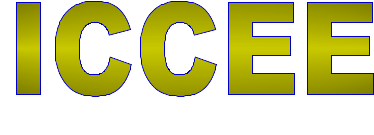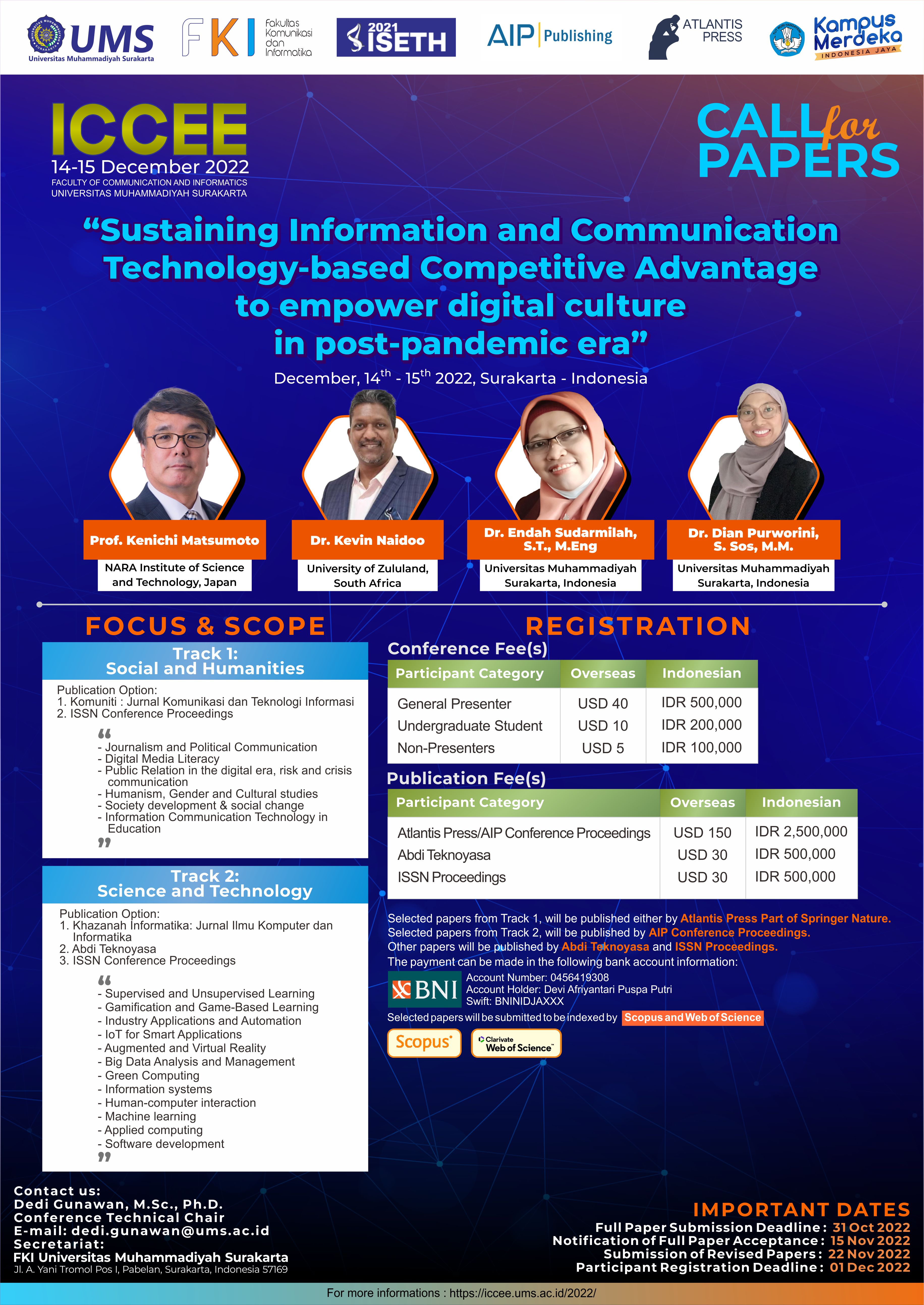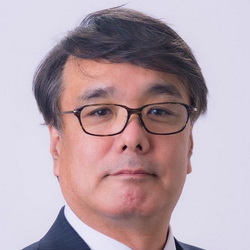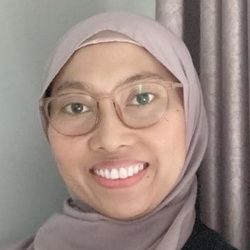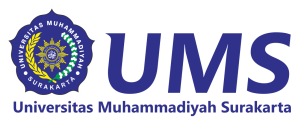ICCEE2022 Paper Submission System
International Conference on Community Empowerment and Engagement (ICCEE2022)
14-15 December 2022
| You have to login to submit ICCEE2022 papers. For the first time user, you need to create author account. If you forgot your password, request new password. |
Introduction
We cordially invite you to submit your papers for the International Conference on Community Empowerment and Engagement (ICCEE) 2022, This conference is part of a conference program called International Summit on Science Technology and Humanity (ISETH) 2022 Organized by Universitas Muhammadiyah Surakarta. This conference will be hosted online from Surakarta, Indonesia on 14-15 December 2022.
ICCEE 2022 aims to bring together leading academic and industrial researchers, scientists, engineers and practitioners to exchange the ideas of latest community service activity ideas, methods, results, and share experiences, on all theoretical, experimental and areas of social & humanities, and science & technology. ICCEE 2022 will provide a unique interdisciplinary and multidisciplinary forum for researchers, practitioners and educators to present and discuss the most recent innovations, trends, practical challenges encountered and intelligent solutions adopted in their respective fields.
Theme
Sustaining Information and Communication Technology-based Competitive Advantage to empower digital culture in post-pandemic era
Speakers
|
|
|
| Kenichi Matsumoto (NARA Institute of Science and Technology, Japan) |
Kevin Naidoo (University of Zululand, South Africa) |
|
|
|
| Dr. Endah Sudarmilah (Universitas Muhammadiyah Surakarta, Indonesia) |
Dian Purworini (Universitas Muhammadiyah Surakarta, Indonesia) |
Focus and Scope
- Journalism and Political Communication
- Digital Media Literacy
- Public Relation in the digital era, risk and crisis communication
- Humanism, Gender and Cultural studies
- Society development & social change
- Information Communication Technology in Education
Important Dates
| Information | Important Dates |
| Full Paper Submission Deadline | |
| 15 November 2022 | Notification of Full Paper Acceptance |
| 22 November 2022 | Submission of Revised Papers |
| 1 December 2022 | Participant Registration Deadline |
The conference covers many topics under areas of social & humanities, and science & technology.
We shall be looking forward to your paper contributions and participation. We hope that the conference will provide an opportunity to meet academic and industry experts to exchange ideas about the latest strategies of community services activities.
Regards,
Conference Organizing Team,
ICCEE 2022
Contact us:
Dedi Gunawan, M.Sc., Ph.D.
Conference Technical Chair
E-mail: dedi.gunawan@ums.ac.id
Collaborations
Conference Fee(s)
The conference participants will be charged conference fee as much as in table below.
| Participant Category | Overseas | Indonesian |
| General Presenter | 40 USD | 500,000 IDR |
| Undergraduate Student | 10 USD | 200,000 IDR |
| Non-Presenters | 5 USD | 100,000 IDR |
Additional information:
- Selected papers will be published by Abdi Teknoyasa Journals.
- Other papers will be published by ISSN Conference Proceedings.
Publication Fee(s)
The selected papers will be charged additional publication fee as much as in table below.
| Participant Category | Overseas | Indonesian |
| Abdi Teknoyasa | 30 USD | 500,000 IDR |
| ISSN Proceedings | 30 USD | 500,000 IDR |
The payment can be made in the following bank account information:
Bank Name: Bank Negara Indonesia
Account Number: 0456419308
Account Holder: Devi Afriyantari Puspa Putri
Swift: BNINIDJAXXX
Chair Conference: Dedi Gunawan, M.Sc., Ph.D.
Track Director: Sidiq Setyawan, M.I.Kom.
Universitas Muhammadiyah Surakarta, Indonesia
Publication: ISSN Conference Proceedings
- Journalism and Political Communication
- Digital Media Literacy
- Public Relation in the digital era, risk and crisis communication
- Humanism, Gender and Cultural studies
- Society development & social change
- Information Communication Technology in Education
Organising Committee
Advisory Board
Dr. Ferda Ernawan
(Universiti Malaysia Pahang, Malaysia)
Dr. Azahar Bin Kasim
(UUM College of Arts and Sciences, Malaysia)
Dr. Gedala Mulliah Naidoo
(University of Zululand, South Africa)
Dr. Adila Firdaus Binti Arbain
(Universiti Teknologi Malaysia, Malaysia)
Prof. Dr. Jayum Anak Jawan
(Universiti Putra Malaysia, Malaysia)
Prof. Dr Mohammed Humayun Kabir
(Noakhali Science and Technology University, Bangladesh)
Dr. Syful Islam
(Noakhali Science and Technology University, Bangladesh)
Monika Sri Yuliarti, S.Sos., M.Si.
(Ewha Womans University, Seoul, South Korea)
Muhammad Helmy Abd Gapar, M.Phil.
(Universiti Kebangsaan Malaysia, Malaysia)
Patricia Chiril, Ph.D.
(University of Chicago, USA)
Confererence Chair
Dedi Gunawan, Ph.D. (Universitas Muhammadiyah Surakarta, Indonesia)
Vice Chair
Yudha Wirawanda, S.I.Kom., M.A. (Universitas Muhammadiyah Surakarta, Indonesia)
Secretariat
Yanti Haryanti, S.Pd., M.A. (Universitas Muhammadiyah Surakarta, Indonesia)
Azizah Fatmawati, S.T., M.Kom. (Universitas Muhammadiyah Surakarta, Indonesia)
Event division
Program director
Dr. Eng. Yusuf Sulistyo Nugroho, S.T., M.Eng. (Universitas Muhammadiyah Surakarta, Indonesia)
Iswahyudi Tejoyuwono. M.Sn. (Universitas Muhammadiyah Surakarta, Indonesia)
Track director
Sidiq Setyawan, M.I.Kom. (Universitas Muhammadiyah Surakarta, Indonesia)
Proceeding Editor
Rona Rizkhy Bunga Chasana, S.I.Kom, M.A (Universitas Muhammadiyah Surakarta, Indonesia)
Vinisa Nurul Aisyah, M.I.Kom. (Universitas Muhammadiyah Surakarta, Indonesia)
Arif Surya Kusuma. M.A. (Universitas Muhammadiyah Surakarta, Indonesia)
Helmi Imaduddin. M.Eng. (Universitas Muhammadiyah Surakarta, Indonesia)
Dimas Aryo Anggoro, S.Kom., M.Sc. (Universitas Muhammadiyah Surakarta, Indonesia)
Maryam, S.Kom., M.Eng. (Universitas Muhammadiyah Surakarta, Indonesia)
Registration and Treasurer
Devi Afriyantari Puspa Putri, S.Kom., M.Sc (Universitas Muhammadiyah Surakarta, Indonesia)
Diah Priyawati. S.T.,M.Eng. (Universitas Muhammadiyah Surakarta, Indonesia)
Public Relation
Dr. Endah Sudarmilah (Universitas Muhammadiyah Surakarta, Indonesia)
Dr. Dian Purworini (Universitas Muhammadiyah Surakarta, Indonesia)
Agus Triyono. M.Si. (Universitas Muhammadiyah Surakarta, Indonesia)
IT and Documentation
Khadijah Zahra Nurbana, S.Kom (Universitas Muhammadiyah Surakarta, Indonesia)
Ahmada Auliya Rahman, S.I.Kom, M.Pd (Universitas Muhammadiyah Surakarta, Indonesia)
Risqi Tri, S.Kom. (Universitas Muhammadiyah Surakarta, Indonesia)
Naura Salsabila (National Dong Hwa University, Taiwan)
Aulia Septianingrum Revyana Nurcahyani (National Dong Hwa University, Taiwan)
Supporting Staff
Setyawan, S.Kom (Universitas Muhammadiyah Surakarta, Indonesia)
M. Rosyid, S.Ak (Universitas Muhammadiyah Surakarta, Indonesia)
Sumardi , S.Kom (Universitas Muhammadiyah Surakarta, Indonesia)
Agus Adiwibawa, S.Pd. (Universitas Muhammadiyah Surakarta, Indonesia)
General Assistant
Drs. Mujiyono (Universitas Muhammadiyah Surakarta, Indonesia)
Nur Rohman Catur Wulandaru, S.E. (Universitas Muhammadiyah Surakarta, Indonesia)
Semiyanto (Universitas Muhammadiyah Surakarta, Indonesia)
| 14 December 2022 | ||
| No | Time (Western Indonesia Time/UTC+7) |
Sessions |
| 1 | 08.00-08.45 | Sign up for Zoom Meeting for the conference participants |
| 2 | 08.45-09.00 |
Opening Remarks (Hybrid online and offline) Master of Ceremony: Welcome Speech: |
| 3 |
09.00-09.45
09.45-10.30 |
Keynote Speaker 1 & 2: Dr. Kevin Naidoo (University of Zululand) Prof. Kenichi Matsumoto (NARA Institute of Science and Technology) |
| 4 |
10.30-10.45
10.45-11.00 |
Keynote Speaker 3 & 4: Dr. Dian Purworini (Universitas Muhammadiyah Surakarta) |
| 5 | 11.00-11.30 | Closing and announcement for the parallel session |
| 6 | 11.30-13.00 | Break |
| 7 | 13.00-16.00 | Online parallel session (Track 1 & Track 2) |
International Conference on Community Empowerment and Engagement (ICCEE) 2021 implements a peer-review policy of single-blind review, where each paper will be evaluated and reviewed in layers. The proceedings editor will evaluate the submitted paper to determine its suitability with the conference focus and scope. Once the paper is declared accepted by the committee, it is sent to two independent expert reviewers. Their role is to review and recommend whether the paper is suitable enough to be published by the Journal. After going through all these processes and declared recommendations by reviewers, the paper can be submitted to Journal for publication.
Publication Ethics and Malpractice Statement
Authors Responsibility
Reporting standards
Authors of reports of original research should present an accurate account of the work performed as well as an objective discussion of its significance. Underlying data should be represented accurately in the paper. A paper should contain sufficient detail and references to permit others to replicate the work. Fraudulent or knowingly inaccurate statements constitute unethical behavior and are unacceptable. Review and professional publication articles should also be accurate and objective, and editorial opinion works should be clearly identified as such.
Data access and retention
Authors may be asked to provide the raw data in connection with a paper for editorial review, and should be prepared to provide public access to such data, if practicable, and should in any event be prepared to retain such data for a reasonable time after publication.
Originality and plagiarism
The authors should ensure that they have written entirely original works, and if the authors have used the work and/or words of others that this has been appropriately cited or quoted. Plagiarism takes many forms, from passing off another’s paper as the author’s own paper, to copying or paraphrasing substantial parts of another’s paper (without attribution), to claiming results from research conducted by others. Plagiarism in all its forms constitutes unethical publishing behavior and is unacceptable.
Multiple, redundant or concurrent publication
An author should not in general publish manuscripts describing essentially the same research in more than one journal or primary publication. Submitting the same manuscript to more than one journal concurrently constitutes unethical publishing behavior and is unacceptable. In general, an author should not submit for consideration in another journal a previously published paper. Publication of some kinds of articles (e.g. clinical guidelines, translations) in more than one journal is sometimes justifiable, provided certain conditions are met. The authors and editors of the journals concerned must agree to the secondary publication, which must reflect the same data and interpretation of the primary document. The primary reference must be cited in the secondary publication.
Acknowledgement of sources
Proper acknowledgment of the work of others must always be given. Authors should cite publications that have been influential in determining the nature of the reported work. Information obtained privately, as in conversation, correspondence, or discussion with third parties, must not be used or reported without explicit, written permission from the source. Information obtained in the course of confidential services, such as refereeing manuscripts or grant applications, must not be used without the explicit written permission of the author of the work involved in these services.
Authorship of the paper
Authorship should be limited to those who have made a significant contribution to the conception, design, execution, or interpretation of the reported study. All those who have made significant contributions should be listed as co-authors. Where there are others who have participated in certain substantive aspects of the research project, they should be acknowledged or listed as contributors. The corresponding author should ensure that all appropriate co-authors and no inappropriate co-authors are included on the paper, and that all co-authors have seen and approved the final version of the paper and have agreed to its submission for publication.
Hazards and human or animal subjects
If the work involves chemicals, procedures or equipment that have any unusual hazards inherent in their use, the author must clearly identify these in the manuscript. If the work involves the use of animal or human subjects, the author should ensure that the manuscript contains a statement that all procedures were performed in compliance with relevant laws and institutional guidelines and that the appropriate institutional committee(s) has approved them. Authors should include a statement in the manuscript that informed consent was obtained for experimentation with human subjects. The privacy rights of human subjects must always be observed.
Disclosure and conflicts of interest
All authors should disclose in their manuscript any financial or other substantive conflict of interest that might be construed to influence the results or interpretation of their manuscript. All sources of financial support for the project should be disclosed. Examples of potential conflicts of interest which should be disclosed include employment, consultancies, stock ownership, honoraria, paid expert testimony, patent applications/registrations, and grants or other funding. Potential conflicts of interest should be disclosed at the earliest stage possible.
Fundamental errors in published works
When an author discovers a significant error or inaccuracy in his/her own published work, it is the author’s obligation to promptly notify the journal editor or publisher and cooperate with the editor to retract or correct the paper. If the editor or the publisher learns from a third party that a published work contains a significant error, it is the obligation of the author to promptly retract or correct the paper or provide evidence to the editor of the correctness of the original paper.
Peer review
Authors are obliged to participate in the peer review process and cooperate fully by responding promptly to editors’ requests for raw data, clarifications, and proof of ethics approval, patient consents and copyright permissions. In the case of a first decision of “revisions necessary”, authors should respond to the reviewers’ comments systematically, point by point, and in a timely manner, revising and re-submitting their manuscript to the journal by the deadline given.
Fundamental errors in published works
When authors discover significant errors or inaccuracies in their own published work, it is their obligation to promptly notify the journal’s editors or publisher and cooperate with them to either correct the paper in the form of an erratum or to retract the paper. If the editors or publisher learns from a third party that a published work contains a significant error or inaccuracy, then it is the authors’ obligation to promptly correct or retract the paper or provide evidence to the journal editors of the correctness of the paper.
Duties of Editors
Publication Decisions
The editor of a peer-reviewed journal is responsible for deciding which of the articles submitted to the journal should be published, often working in conjunction with the relevant society (for society-owned or sponsored journals). The validation of the work in question and its importance to researchers and readers must always drive such decisions.
The editor may be guided by the policies of the journal’s editorial board and constrained by such legal requirements as shall then be in force regarding libel, copyright infringement and plagiarism. The editor may confer with other editors or reviewers (or society officers) in making this decision.
Fair play
An editor should evaluate manuscripts for their intellectual content without regard to race, gender, sexual orientation, religious belief, ethnic origin, citizenship, or political philosophy of the authors.
Confidentiality
The editor and any editorial staff must not disclose any information about a submitted manuscript to anyone other than the corresponding author, reviewers, potential reviewers, other editorial advisers, and the publisher, as appropriate.
Disclosure and Conflicts of Interest
Unpublished materials disclosed in a submitted manuscript must not be used in an editor’s own research without the express written consent of the author.
Privileged information or ideas obtained through peer review must be kept confidential and not used for personal advantage. Editors should reuse themselves (i.e. should ask a co-editor, associate editor or other member of the editorial board instead to review and consider) from considering manuscripts in which they have conflicts of interest resulting from competitive, collaborative, or other relationships or connections with any of the authors, companies, or (possibly) institutions connected to the papers.
Editors should require all contributors to disclose relevant competing interests and publish corrections if competing interests are revealed after publication.
If needed, other appropriate action should be taken, such as the publication of a retraction or expression of concern. It should be ensured that the peer-review process for sponsored supplements is the same as that used for the main journal. Items in sponsored supplements should be accepted solely on the basis of academic merit and interest to readers and not be influenced by commercial considerations. Non-peer reviewed sections of their journal should be clearly identified.
Duties of Reviewers
Involvement and Cooperation in Investigations
An editor should take reasonably responsive measures when ethical complaints have been presented concerning a submitted manuscript or published paper, in conjunction with the publisher (or society). Such measures will generally include contacting the author of the manuscript or paper and giving due consideration of the respective complaint or claims made, but may also include further communications to the relevant institutions and research bodies, and if the complaint is upheld, the publication of a correction, retraction, expression of concern, or other note, as may be relevant even if it is discovered years after publication.
Contribution to Editorial Decisions
Peer review assists the editor in making editorial decisions and through the editorial communications with the author may also assist the author in improving the paper. Peer review is an essential component of formal scholarly communication, and lies at the heart of the scientific method.
Promptness
Any selected referee who feels unqualified to review the research reported in a manuscript or knows that its prompt review will be impossible should notify the editor and excuse himself from the review process.
Confidentiality
Any manuscripts received for review must be treated as confidential documents. They must not be shown to or discussed with others except as authorized by the editor.
Standards of Objectivity
Reviews should be conducted objectively. Personal criticism of the author is inappropriate. Referees should express their views clearly with supporting arguments.
Acknowledgement of Sources
Reviewers should identify relevant published work that has not been cited by the authors. Any statement that an observation, derivation, or argument had been previously reported should be accompanied by the relevant citation. A reviewer should also call to the editor’s attention any substantial similarity or overlap between the manuscript under consideration and any other published paper of which they have personal knowledge.
Disclosure and Conflict of Interest
Unpublished materials disclosed in a submitted manuscript must not be used in a reviewer’s own research without the express written consent of the author. Privileged information or ideas obtained through peer review must be kept confidential and not used for personal advantage. Reviewers should not consider manuscripts in which they have conflicts of interest resulting from competitive, collaborative, or other relationships or connections with any of the authors, companies, or institutions connected to the papers.
Policy of Screening for Plagiarism
All manuscripts must be free from plagiarism contents. All authors are suggested to use plagiarism detection software to do the similarity checking. Editors check the plagiarism detection of articles in this journal by using a Turnitin software.
Declaration of Originality
The authors confirm that the article has not been submitted to peer review, nor is in the process of peer reviewing, nor has been accepted for publishing in another journal. The author(s) confirms that the research in their work is original, and that all the data given in the article are real and authentic. If necessary, the article can be recalled, and errors corrected.
